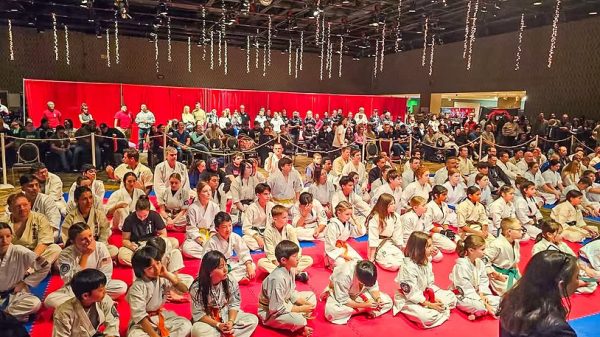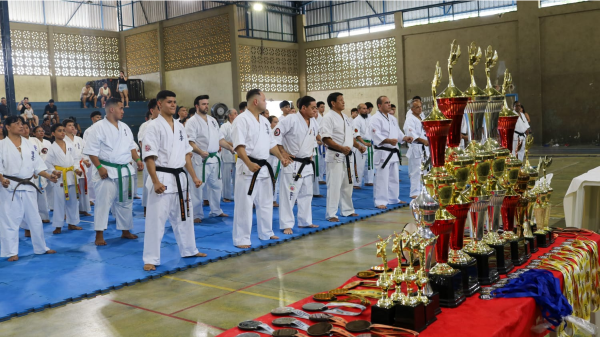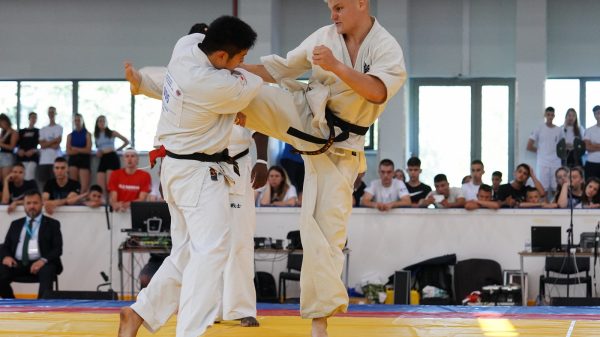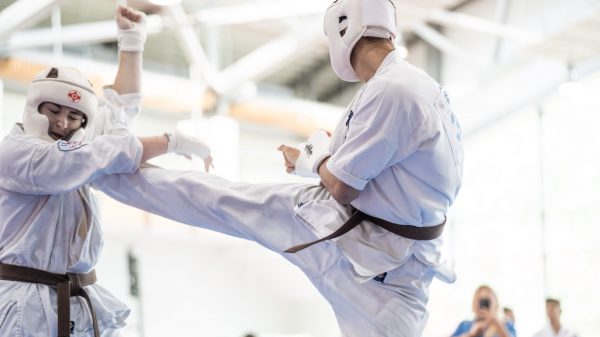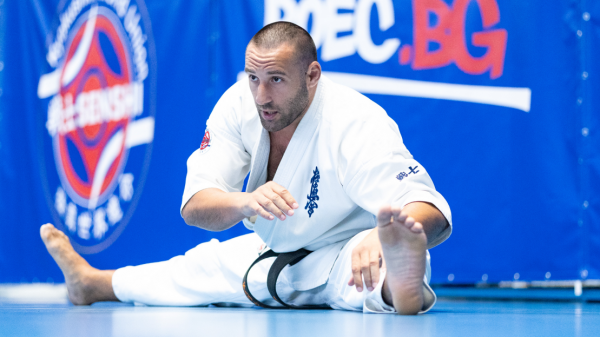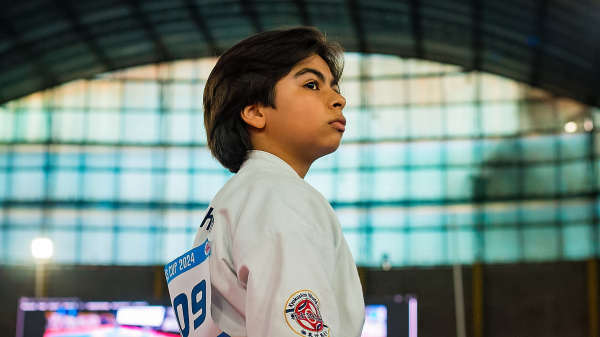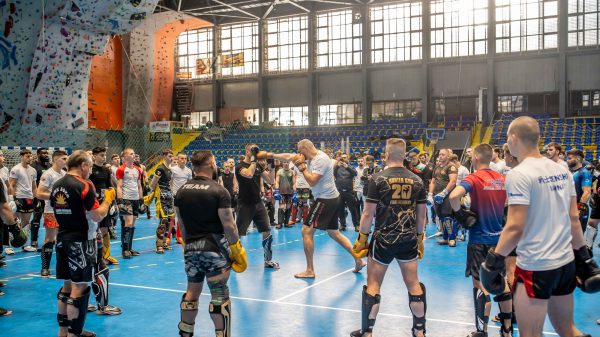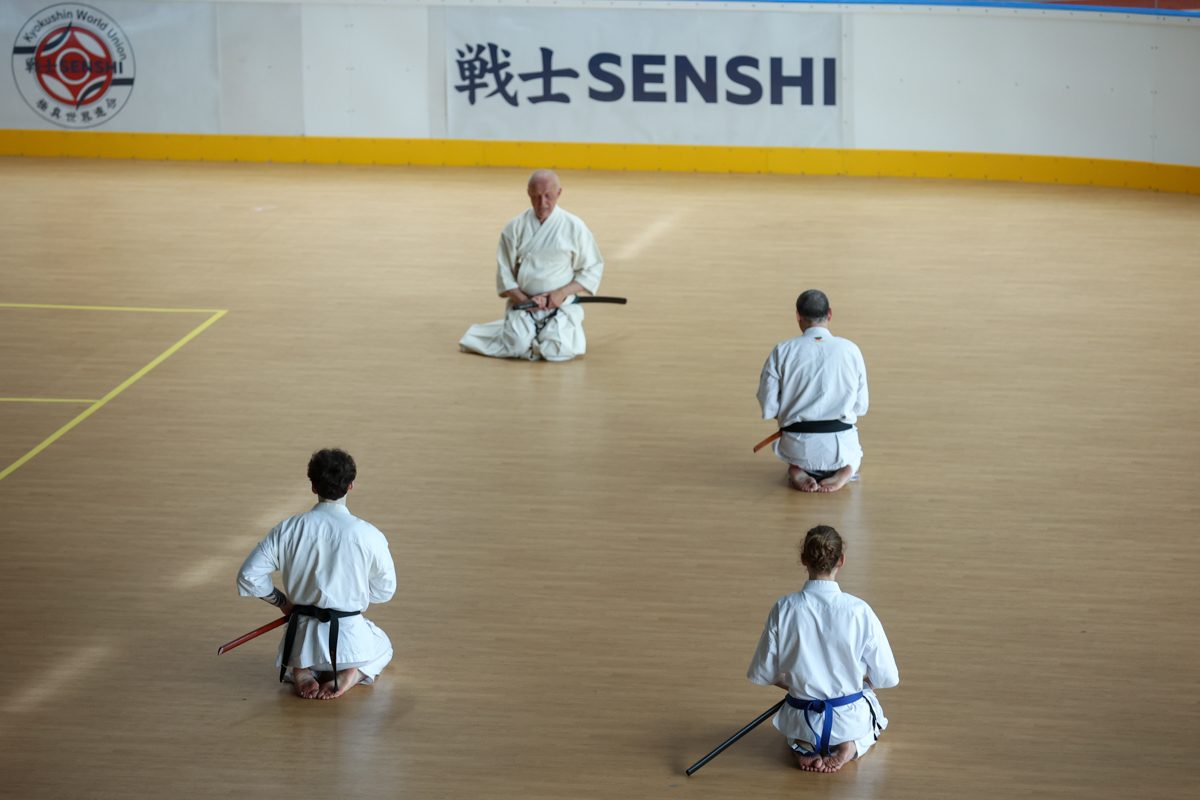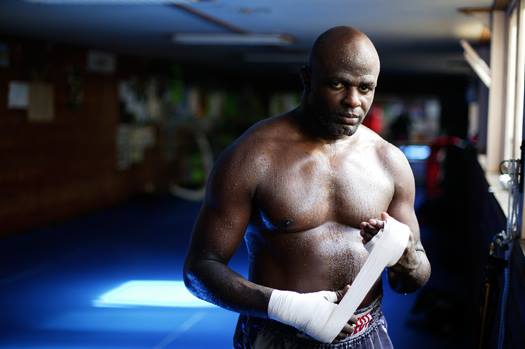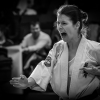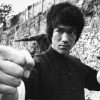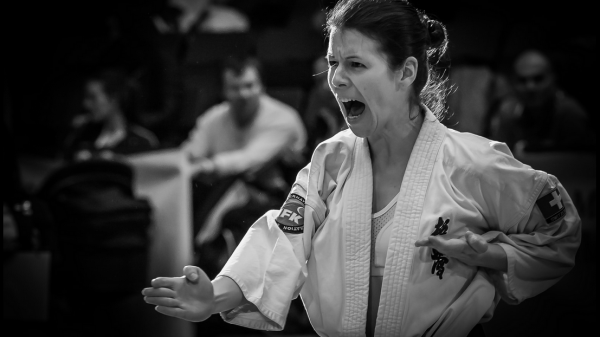“When you can snatch the pebble from my hand, it will be time for you to leave.” That was what Master Kan (Philip Ahn) tells the young Kwai Chang Caine (Radames Pera) in the martial arts-action television program Kung Fu (1972). Although the show was a tale of Caine (David Carradine) wandering the Old West, it was the flashbacks to his training that always interested me. Through the lessons from Caine’s teachers, we got a glimpse into what it takes to study something until you can be declared a master. While I am not a master, I have been fortunate enough to study with a few and have certainly contemplated the question: What does it mean to be a “Master”?
Student
I remember scanning the rows of students on my first day in karate class and taking inventory of the number of different colored belts. There were a lot of white belts, like me, and there were probably just as many orange belts. As I continued surveying the lines of the higher ranks, the numbers started to dwindle. It made me wonder: “How many white belts make it to the black belt?”
The truth is that regardless of the style of martial art, there are always going to be a large number of students that begin but don’t continue and make it to the highest level(s). Why is that? I am reminded of the quote from John Milton’s Paradise Lost: “Long is the way and hard, that out of Hell leads up to Light.” That may seem a bit dramatic, but I have never been tested more, physically or mentally, than during my martial arts career. I am willing to bet many readers have had similar experiences and would probably agree. What I gleaned from the experience is that the key element to being a successful student is self-discipline.
Whether it was straining against the sudden and abnormally strong gravity for that last push-up, enduring the shaking legs of stance training, or taking the thudding falls from a classmate’s well-executed throw, it was always more demanding than my company’s after-work office party, which I’d passed up to go to class. Coworkers, amazed by my choice for the evening’s activity, would say, “You can miss just once, can’t you?” I could have, but I never did. The hard choices of exercising self-discipline are what it takes to make it to the next level.
It’s been said that learning doesn’t really begin until a black belt. That is when the student is best prepared to understand the higher-level concepts and teachings because they have mastered the basics and they can grasp the lessons of the teacher, or master, directly.
For ease of understanding for the reader, let’s say that we are considering the black belt degrees from first and above, or their equivalent in a particular martial art. (For non-belt-using arts, let’s suppose over five consecutive years of study) This is most often the time when a practitioner is teaching as well as studying their martial art. They are committed to the style and are more than likely going to stick with it.
I believe teaching is the best way to learn something, and I think it is key to achieving a higher level of understanding in martial arts. When I’ve taught anything, I’ve always excelled equally as a student.
Teaching often requires looking at something in a different way than one had considered before. It usually entails solving a problem or coming up with a drill to fix a student’s unique mistake. Sometimes, it’s just recalling some piece of wisdom that was passed to you, which is then passed to your student, who also passes it down to their student, and thus the endless teachings of generations are secured. If you want to get good at something, teach.
Master
What does it mean to be a master? Instantly, my mind is drawn to characters like Han (Kien Shih) from Enter the Dragon or Feng (Christopher Walken) from Balls of Fury. Mastery must mean a flamboyant costume, a big throne, an aloof attitude, and never having to learn anything ever again because you know it all. Regarding mastery, that couldn’t be further from the truth.
The masters that I have been lucky enough to learn from always struck me first by their humble nature and their insatiable desire for learning and improving. Once, after a lesson with a master, I thanked him and was surprised by the response. “Thank you!” he said with a smile. Upon noticing my surprise, he said, “I don’t teach for you. I teach for me.” That principle is not unique to martial arts. Whether in music, sales, reupholstering furniture, or anything else that requires specialized skills, the same philosophy applies. In the same way that the master swordsman is always keeping their blade sharp, mastery requires always seeking to learn and become better.
By Noel Plaugher




